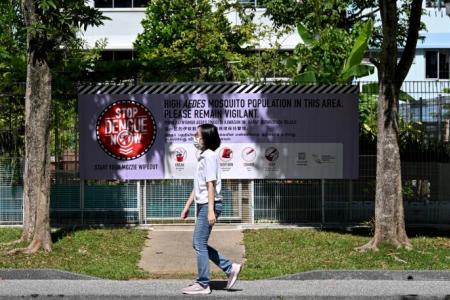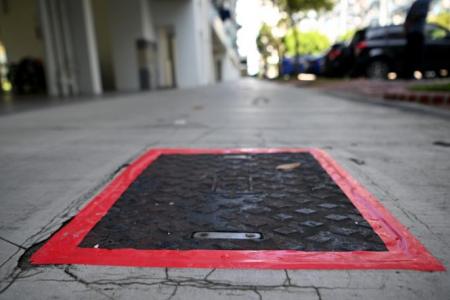New purple dengue alert banner deployed in areas with high Aedes mosquito populations
With dengue cases rising faster than last year, people living in areas with persistently high Aedes aegypti mosquito population are reminded to remain vigilant with a new purple banner.
Colour-coded banners - purple, yellow, red and green - are being employed by the National Environment Agency (NEA) as part of its Dengue Community Alert System.
The banners complement existing vector control operations and community outreach efforts.
Close to 3,000 dengue cases have been reported since the start of this year, NEA said on Wednesday (March 30).
This makes it faster than the rise in cases last year, when more than 2,000 dengue cases were reported only at the end of April.
Weekly reported dengue cases have also been rising sharply, with 444 cases recorded last week ending March 26 - which is 20 cases more than in the previous week.
There are also currently 112 active dengue clusters.
About 101,000 inspections were carried out for mosquito breeding islandwide between January and February, with NEA uncovering about 2,600 mosquito breeding habitats.
NEA said that there are three main reasons contributing to the surge.
First, there is a high Aedes aegypti mosquito population detected in the community, with the population of mosquitoes last month standing at 17 per cent higher compared with February last year.
Second, the mosquitoes appear to be carrying the more uncommon DenV-3 serotype of dengue. The DenV-3 has been detected in large dengue clusters across the island.
Most recovered dengue patients in Singapore would have immunity against DenV-1 and DenV-2 serotypes, which are two of the four distinct dengue virus variations and the most commonly seen here.
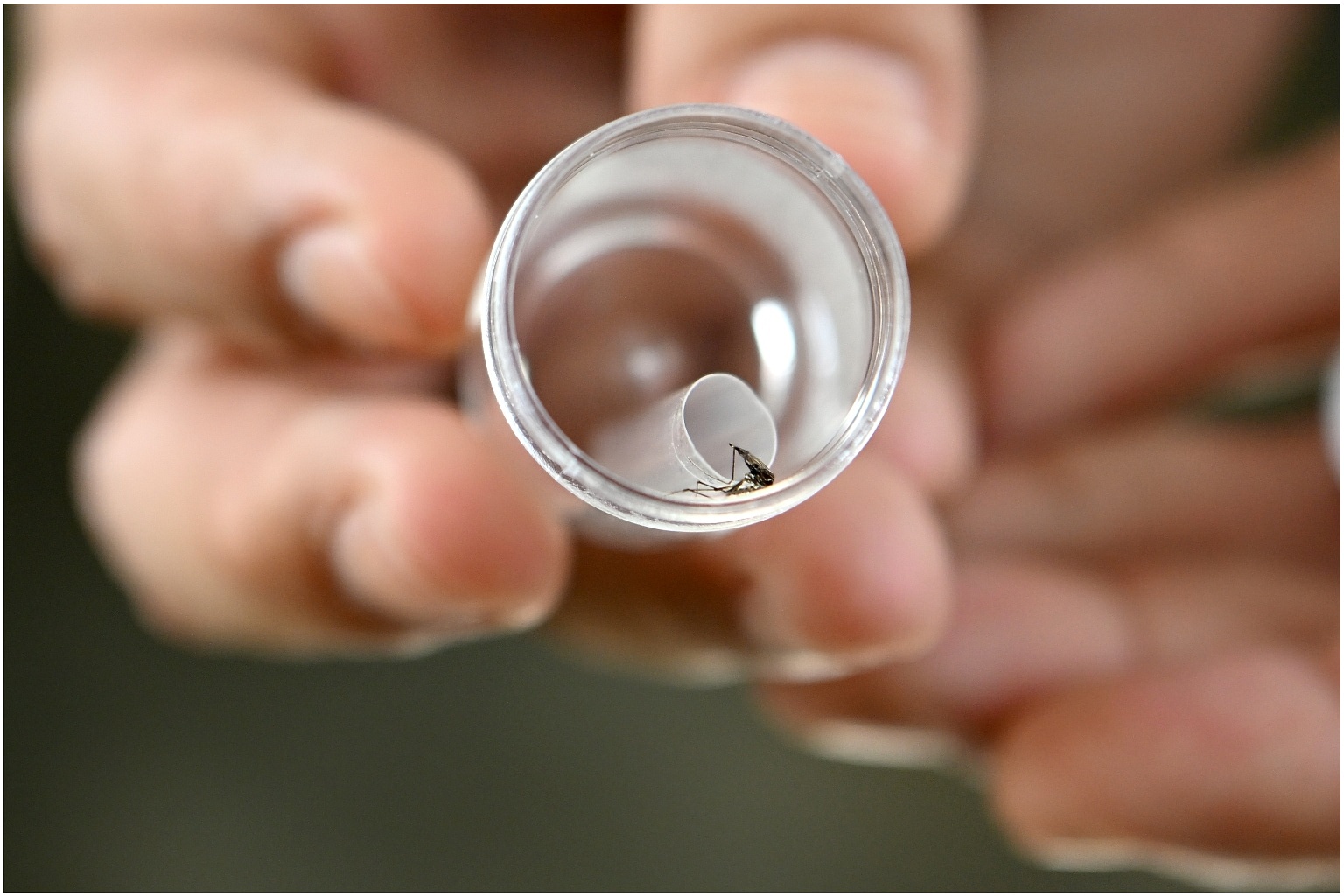
Less common strains, like DenV-3, would increase the risk of an outbreak.
Finally, NEA said more people are staying at home, which gives the day-biting mosquito more time to prey on them.
It also warned that the warmer months from June to October will compound this surge.
Warmer temperatures accelerate the development of the Aedes mosquito and also cause the virus to replicate faster in the insects.
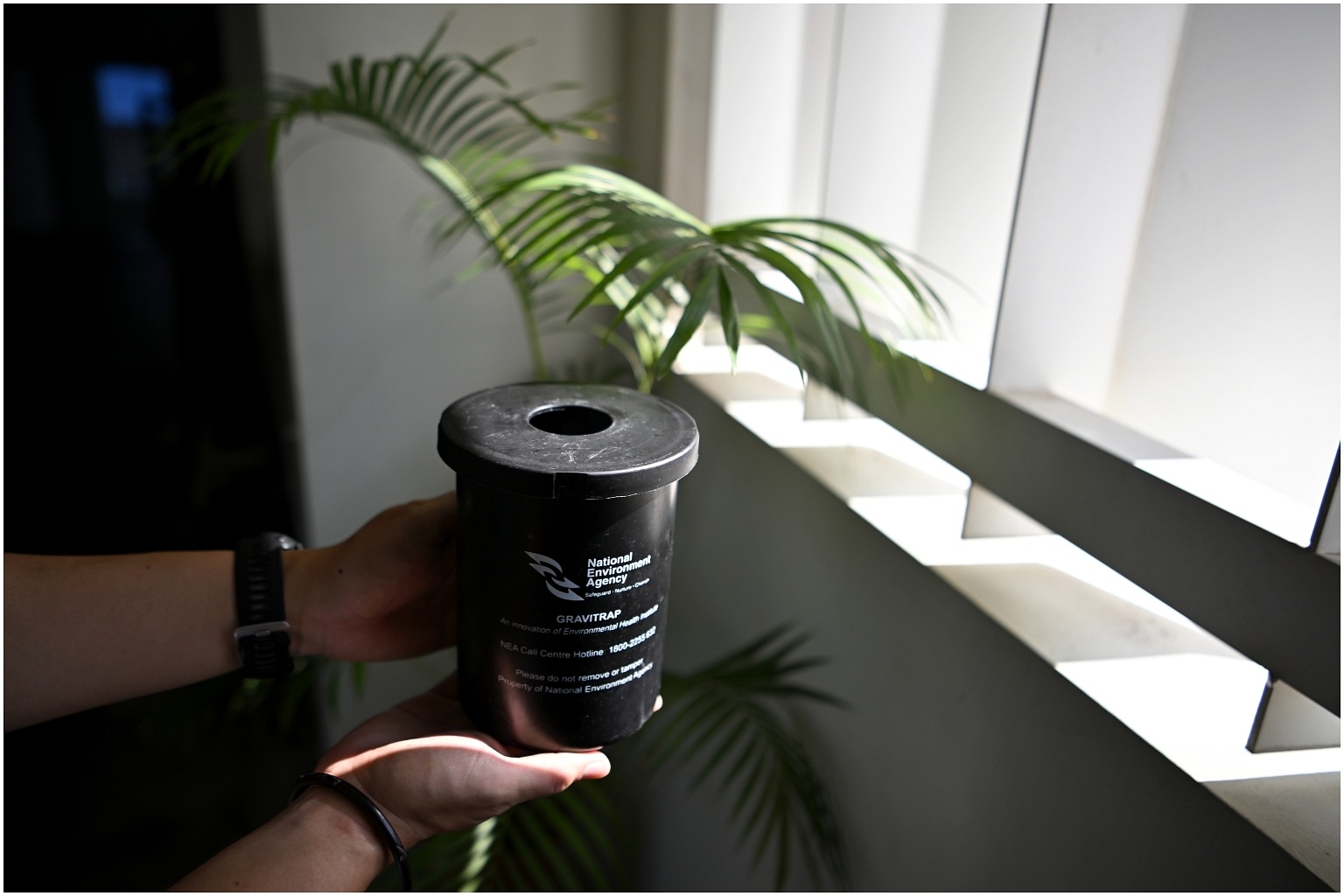
With this surge of dengue cases, NEA launched the annual dengue prevention campaign early on Wednesday, ahead of the traditional mid-year peak dengue season.
As part of the launch, Minister of State for Sustainability and the Environment Desmond Tan visited Blk 414 Pasir Ris Drive 6 - an area detected to have a persistently high population of Aedes mosquitoes - to unveil the purple banner.
Mr Tan said: "Even if we are in the midst of a Covid-19 pandemic, dengue remains a clear and serious public health threat."
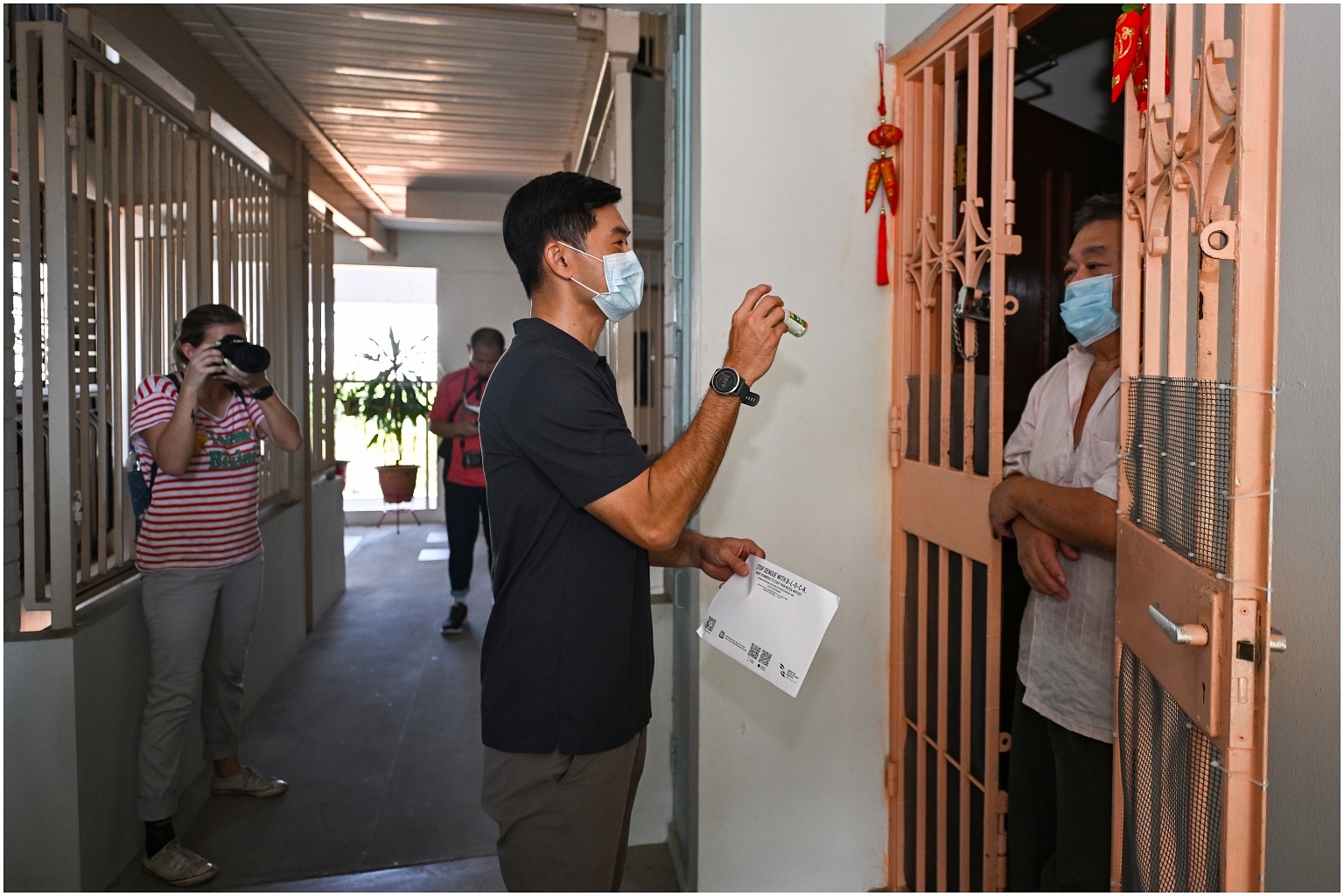
The aim of the banner is to rally the community to take positive actions to prevent the breeding of mosquitoes, he added.
Among other steps, people can prevent the breeding of mosquitoes by lifting and emptying flower pot plates and keeping roof gutters clear of leaves.
The annual dengue prevention campaign will also see local grassroots advisers and leaders, with support from NEA's dengue prevention volunteers, conducting house visits in dengue clusters and areas with high Aedes aegypti mosquito populations.
They will be disseminating information on mosquito breeding and distributing repellent during house visits.
Get The New Paper on your phone with the free TNP app. Download from the Apple App Store or Google Play Store now

